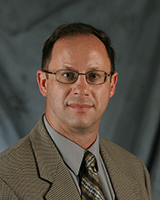Norbert Delatte talked with ASCE Publications about his tenure as an ASCE editor and his plans for the
Journal of Performance of Constructed Facilities. Delatte, Ph.D., P.E., F.ASCE, is M.R. Lohmann Endowed Professor of Engineering and Head of the School of Civil and Environmental Engineering at Oklahoma State University.
ASCE Publications: You could say you are a bit of an "institution" in the Journal’s department here at ASCE. After being the longest serving editor on
Journal of Professional Issues in Engineering Education and Practice (JPIEEP), for 10 years; you recently replaced the longest serving editor, Kenneth Carper, at the
Journal of Performance of Constructed Facilities (JPCF). How did that come about?
Norb Delatte: Carper was the editor of JPCF since its inception in 1987. I’ve known him a long time, and served with him on the Editorial Board of JPCF (while editor of JPIEEP). When he made his decision to retire, he asked me to take the job. I’ve always found the subject matter interesting and was familiar with it from serving on the board. It was a good change. And the JPIEEP is in great hands with the new Editor, Matt Roberts of Southern Utah University.
ASCE Publications: What challenges do you see taking on this role as JPCF editor?
Norb Delatte: The mission of this journal is to improve the civil engineering profession and practice, learn from mistakes, and to ultimately save lives. I want this journal to lead the conversation on structural performance and disaster investigation, but we need to set boundaries to create that focus. I am in the process of redefining the journal’s scope to ensure that we meet our mission.
Changes will tighten up the scope and probably involve transferring certain submissions to more appropriate journals within ASCE, as well as being stricter on what constitutes an appropriate paper for this journal.
ASCE Publications: Describe the content you look to publish.
Norb Delatte: I want to provide applied engineering content rather than basic engineering concepts. Going forward, I would like readers to see case studies, post-disaster reconnaissance reports, as well as steps on how investigations were performed and the instruments and tools used. This journal is particularly helpful to practicing engineers, and the content will reflect that with more focus on forensic engineering, natural hazards, and in-place monitoring.
ASCE Publications: How did you get into editorial work?
Norb Delatte: I wouldn’t say I had a calling, but it was a natural progression. At college, I was in ROTC and took engineering. Then I became an officer in the Army Corp of Engineers. After serving for 11 years, I moved to academia, teaching on the West Point faculty, as well as at the University of Alabama at Birmingham and Cleveland State University and now with Oklahoma State University.
My introduction to journals was in writing and publishing papers. With JPIEE I knew the editor and he asked me to join the editorial board. And that evolved in to being editor.
ASCE Publications: What are the big challenges facing researchers today?
Norb Delatte: Once researchers get past the funding issues, it can be a challenge to find good journals to publish in. There are more journals today, but of those, knowing which ones are quality publications and not predatory ones. I would say with reduced funding, we will see more collaboration between researchers, domestically and internationally. While collaboration can present logistical challenges, it should make for more interesting papers with a broader scope.
ASCE Publications: Can you offer any advice to new researchers starting out?
Norb Delatte: I would recommend anyone looking to publish to get involved in the service element from the beginning. Serve as paper reviewers. If you have an expectation for others to review your work, you should do the same. In so doing, you will write better papers, and learn how to develop publishable papers.
Learn more about contributing to the
Journal of Performance of Constructed Facilities.
